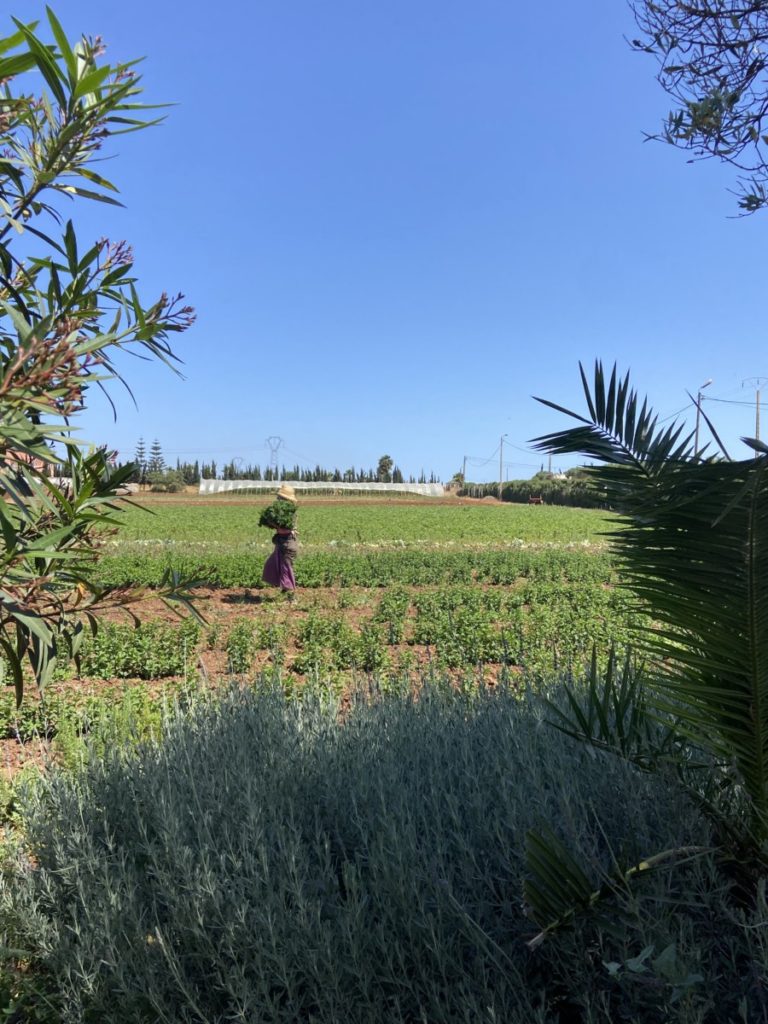The social status of being a female agricultural worker carries a heavy weight, and what comes with cultivating the land as a woman can only be understood by being one. In Morocco, 52% of the agricultural labor force are women. Almost all women in rural areas work on farms in addition to household chores like cooking, raising children, laundry, and cleaning. They were not paid for their work until the 1990s, and yet still today they receive far less pay while working in horrible conditions compared to their male counterparts. Farmers prefer to hire female workers because of the cheap labor, presumed docility, and their reputed “care” in handling crops harvested.
While in Morocco, we learned about the Argan industry. We discovered that only women are involved in the process of creating argan oil, because of how painful and time consuming it is. They have smaller hands than men, so it is considered more efficient for them to do the work, even though it is still violently difficult, tedious, and painful. The method of making argan oil was started by Berber women, and that same method has been around for centuries. However today, international demand has increased production immensely, and the fruit of their own labor has decreased over time. More than 90% of Morocco’s argan oil export is in international bulk, which leaves little room for the locals to capitalize upstream of the value chain (Louhine Bennana). Most of the women today now work for corporations that have taken over, and big businesses dominate their return value.
This typical marginalization of female workers is also seen in all other sectors of ag. I can’t help but think of the large amount of work women do in the agriculture field, yet go unrecognized with little to no profit. I’m sure women feel the effects of being overlooked, and are tired of being treated as if they were invisible in the process of agricultural work.
https://www.unido.org/news/value-added-argan-oil-increasing-womens-independence-rural-moroccohttps://www.solidaritycenter.org/women-farm-workers-in-morocco-gain-equal-voice-at-work/

